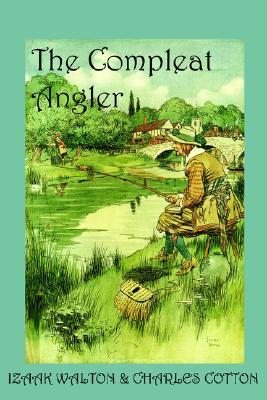Chapter XXI — The Compleat Angler
byChapter XXI — The Compleat Angler invites readers into a closing conversation between Piscator and Venator, shaped by the calm of nature and the shared rhythm of angling. In these final exchanges, Piscator not only imparts fishing wisdom but also unveils the essence of a life well-lived. He emphasizes that a seasoned angler must care for his tools, not just to succeed in catching fish, but to respect the discipline itself. With simple instructions on dyeing lines and storing rods, Piscator models a patient, methodical approach that transcends the act of fishing. His words highlight craftsmanship and care, celebrating the small rituals that connect man to the natural world. Practicality, he insists, must go hand in hand with appreciation. For Piscator, these tools are extensions of the angler’s relationship with nature, deserving of thoughtful attention rather than mere utility.
As the discussion shifts, the tone becomes reflective and philosophical. Piscator shares a heartfelt belief that true abundance lies not in coin or property, but in peace of mind and grateful observation of the world around us. He warns of the dangers in chasing luxury or status, which often demands sacrifices of integrity and calm. Instead, he praises the value of a clear conscience, good health, and simple pleasures. His praise for nature is neither naive nor escapist—it is a grounded appreciation of its restorative power. The quiet stream, the song of birds, and the pull of a fishing line offer more than recreation; they provide renewal. Venator listens attentively, recognizing in his companion’s calm reflections a kind of wisdom deeper than any sermon.
Piscator gently critiques those who measure happiness by accumulation, reminding Venator that even kings suffer envy and unease. He likens angling to a spiritual practice, where patience teaches humility and success is not guaranteed. By embracing nature’s pace and bounty, one learns to accept both plenty and scarcity without despair. The metaphors of water and fishing mirror life itself: the need to cast one’s line and wait without control over the outcome. This surrender fosters resilience, something modern ambitions often overlook. Piscator’s message resonates as a counterweight to restless striving, encouraging gratitude over greed.
Poetry, shared between the two friends, adds a lyrical layer to the narrative. Their verses praise meadows, quiet streams, and the eternal cycle of seasons—all reminders of life’s transience and beauty. These gentle rhymes enrich the text with emotional depth, transforming a manual on fishing into a reflection on mortality and meaning. By intertwining verse and philosophy, Piscator underscores how language, like angling, requires patience, observation, and reverence for the unseen. The lines serve not as performance but as offerings to the natural world that sustains them.
As they prepare to part, Venator expresses his appreciation with genuine warmth. His character arc is subtle but clear—transformed not only into a better angler but a more reflective soul. He leaves with more than technique; he carries with him a new lens through which to see the world. Piscator, having given freely of his knowledge, asks for no reward beyond friendship and remembrance. This final gesture underlines the entire spirit of the book: generosity, humility, and joy in simple companionship. There is no pretense of mastery, only an invitation to keep learning, fishing, and living well.
Beyond its literary charm, this chapter carries a subtle call to mindfulness. In a fast-paced world, its advice feels newly urgent. It proposes that the true art of angling is not about catching fish, but about catching moments—those rare and fleeting ones where contentment settles in like the still water before dawn. “The Compleat Angler” ends, not with triumph, but with tranquility, offering readers a quiet place to rest and reflect long after the book is closed.


